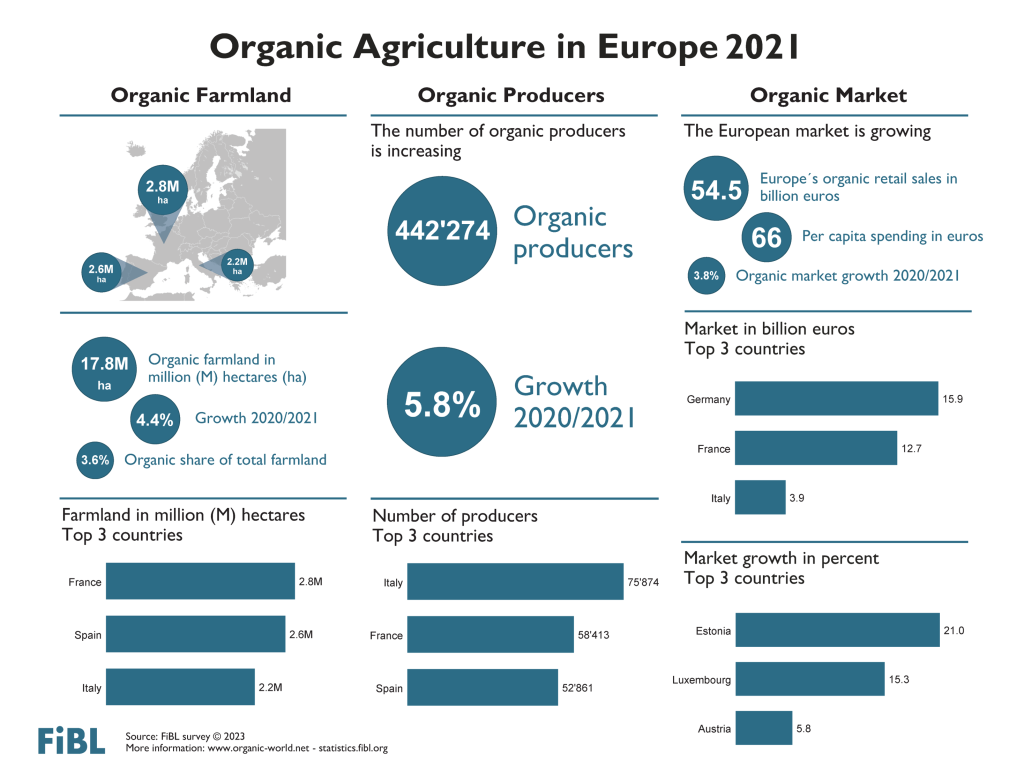
Increasing by almost 4%, the European organic market reached another high in 2021: 54.5 billion euros. Organic farmland expanded by almost 0.8 m ha.
In 2021, 17.8 m ha of farmland in Europe were organic (in the EU: 15.6 m ha). With almost 2.8 m ha, France continued to be the number one country in terms of farmland under organic management, followed by Spain (2.6 m ha), Italy (2.2 m ha) and Germany (1.8 m ha).
Organic farmland increased by almost 0.8 m ha, which represented an increase of 5.2% in the EU and 4.4% in Europe. This increase was slightly lower than in 2020. Compared to 2020, France and Spain reported an increase of 0.23 m ha and 0.20 m ha, respectively.
In 2021, organic farmland in Europe constituted 3.6% of the total agricultural land. It was 9.6% in the EU. In Europe (and globally), Liechtenstein had the highest organic area share (40.2%), followed by Austria, the country with the highest organic share (26.5%) in the EU. Fifteen European countries reported that at least 10% of their farmland was organic.
Retail sales in Europe were valued at 54.5 billion € (46.7 billion in the EU). The largest market was Germany (15.9 billion €). The EU represented the second-largest single market for organic products globally after the United States (48.6 billion €).
In 2021, consumers in Europe spent 65.7 € on organic food per person on average (EU: 104.3 €). Consumer spending on organic food per capita doubled in the decade 2012-2021. In 2021, Swiss and Danish consumers spent the most on organic food (425 and 384 € per capita, respectively).
Globally, European countries accounted for the highest share of organic food sales as a percentage of their respective food markets. Denmark had the highest share worldwide, with 13.0% in 2021, followed by Austria with a share of 11.6% and Luxembourg with 11.0%.
In 2021, the European market achieved a growth rate of 3.8% (EU: 3.6%). The highest growth was observed in Estonia (+21%) and Luxembourg (+15.3%), the only countries with double-digit growth in 2021. The pandemic continued to sustain organic markets in many European countries in 2021, but not to the same extent as in 2020, when the market grew by 15%.
In 2022, increasing prices for consumer goods cut food spending among some groups. The 2022 data will show the impact on the organic market.
Source: https://www.organic-world.net/yearbook/yearbook-2023.html
